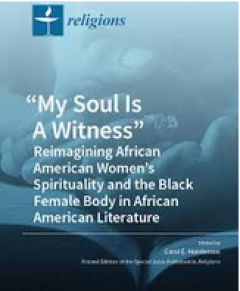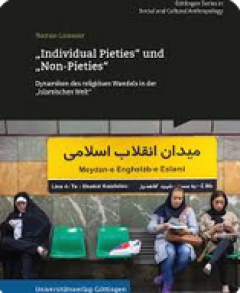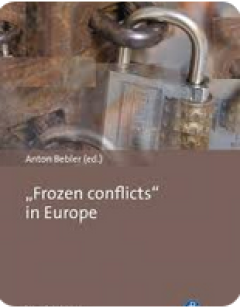Filter by

"No Words for Feelings, yet!". Exploring Alexithymia, Disorder of Affect Regu…
eBook ini adalah kumpulan artikel dari Topik Riset Frontiers. Topik Riset Frontiers adalah merek dagang yang sangat populer dari Seri Jurnal Frontiers: mereka adalah kumpulan dari setidaknya sepuluh artikel, semua berfokus pada subjek tertentu. Dengan campuran kontribusi yang beragam dari Penelitian Asli hingga Artikel Tinjauan, Topik Riset Frontiers menyatukan para peneliti paling berpengaruh,…
- Edition
- -
- ISBN/ISSN
- 9782889660346
- Collation
- 1 online resource (153 p.)
- Series Title
- -
- Call Number
- 616.89 BER n

"No One Will Do This For Us"; The Linguistic and Cultural Practices of Young …
Buku ini menyajikan potret pemuda yang terlibat aktif mewakili empat minoritas linguistik di Eropa: Kashub (di Polandia), Sorb Atas (di Jerman), Breton (di Prancis), dan Welsh (di Britania Raya). Dalam berbagai pernyataan yang dikutip dalam buku ini, yang diambil dari wawancara yang dilakukan oleh penulis, pemuda berbicara untuk diri mereka sendiri dan berfungsi sebagai pemandu untuk budaya min…
- Edition
- -
- ISBN/ISSN
- 978-3-631-82785-7
- Collation
- 1 online resource (392 p.)
- Series Title
- Kontak bahasa dan budaya di Eropa Tengah
- Call Number
- 306.446 RYB n

"Next Generation EU" Cities; Local Communities in a Post-Pandemic Future
Saat dunia memasuki tahun baru, pandemi Covid-19 masih mengguncang kehidupan sehari-hari kita. Dan karena 75% warga UE tinggal di daerah perkotaan, kota-kota adalah panggung paling menonjol baik untuk merespons krisis kesehatan, maupun untuk mengambil peluang untuk pulih dan bergerak maju. Sementara itu, pada tahun 2020, negara-negara UE sepakat untuk Next Generation EU, sebuah paket pemulihan …
- Edition
- -
- ISBN/ISSN
- 9788855266147
- Collation
- 1 online resource (158 p.)
- Series Title
- Publikasi ISPI
- Call Number
- 338.940091732 BON n

"My Soul Is A Witness". ; Reimagining African American Women’s Spirituality…
Koleksi istimewa ini mengumpulkan beberapa sarjana terkemuka di bidang Studi Afrika, Afrof Amerika, dan Studi Amerika untuk mengeksplorasi cara penulis merebut kembali tubuh perempuan kulit hitam dalam sastra Amerika Afrika dengan menggunakan kerangka teori, sosial, budaya, dan religius dari spiritualitas dan agama. Inti dari diskusi ini adalah agensi perempuan kulit hitam dalam ranah ini—kem…
- Edition
- -
- ISBN/ISSN
- 9783036500829
- Collation
- 1 online resource (138 p.)
- Series Title
- -
- Call Number
- 810.9 HEN m

"Individual Pieties" und "Non-Pieties"; Dynamiken des religiösen Wandels in …
Makalah ini mengkaji dinamika perubahan religius di dunia Islam melalui pembedaan analitis antara individual pieties (kesalehan individual) dan non-pieties (praktik, orientasi, atau disposisi yang tidak selaras dengan bentuk kesalehan normatif). Dengan berangkat dari perspektif sosiologi agama dan antropologi Islam, studi ini menyoroti bagaimana transformasi sosial, ekonomi, dan politik—terma…
- Edition
- -
- ISBN/ISSN
- 978-3-86395-557-1
- Collation
- 1 online resource (Xii, 235)
- Series Title
- -
- Call Number
- 297.09051 LOI i

"I'm Not Gonna Die in This Damn Place"; Manliness, Identity, and Survival of …
Pada zaman Perang Vietnam, "Generasi Meksiko Amerika" telah membuat kemajuan yang luar biasa baik secara sosial maupun politik. Namun, jumlah Meksiko Amerika dibandingkan dengan jumlah tahanan perang (POW) kulit putih menunjukkan diskriminasi dan ketidaksetaraan yang signifikan yang dihadapi populasi Chicano baik di militer maupun di masyarakat sipil. Chicanos secara tidak proporsional adalah "…
- Edition
- -
- ISBN/ISSN
- 9781628953213
- Collation
- 1 online resource
- Series Title
- -
- Call Number
- 959.70437 COR i

"Humanized" Large Animal Cancer Models: Accelerating Time and Effectiveness o…
eBook ini adalah kumpulan artikel dari Topik Penelitian Frontiers. Topik Penelitian Frontiers adalah merek dagang yang sangat populer dari Seri Jurnal Frontiers: mereka adalah kumpulan setidaknya sepuluh artikel, semuanya berpusat pada subjek tertentu. Dengan campuran unik dari kontribusi bervariasi dari Penelitian Asli hingga Artikel Tinjaun, Topik Penelitian Frontiers menyatukan para peneliti…
- Edition
- -
- ISBN/ISSN
- 9782889632497
- Collation
- 1 online resource (113 p.)
- Series Title
- -
- Call Number
- 616.99400724 SCH h

"Harry - yer a wizard"; Exploring J.K. Rowling's Harry Potter Universe
Seri "Harry Potter" karya J.K. Rowling (1997–2007) telah menjadi fenomena global dan dunia Potter-nya masih berkembang. Kontribusi dalam volume ini menyediakan berbagai pendekatan inter- dan transdisipliner terhadap berbagai dimensi dari alam semesta multifaset ini. Artikel pengantar berfokus pada berbagai bentuk pembangunan dunia dalam novel, terjemahan, seri film, dan fandom. Bagian I menel…
- Edition
- -
- ISBN/ISSN
- 9783828867512
- Collation
- 1 online resource
- Series Title
- -
- Call Number
- 823.914 GYM h

"Frozen Conflicts" in Europe
Sering terlupakan namun mengendap, "konflik beku" terus menandai peta politik Eropa. Semua terletak di Eropa Tenggara, kawasan Laut Hitam, dan Transkaukasis, konflik ini berjalan di sepanjang garis etnis, nasional, budaya, dan linguistik, memisahkan komunitas. Buku yang penuh wawasan ini menawarkan analisis kritis yang jarang terjadi mengenai kasus Siprus Utara, Transnistria, Abkhazia, Ossetia …
- Edition
- -
- ISBN/ISSN
- 9783847404286
- Collation
- 1 online resource
- Series Title
- -
- Call Number
- 327.47 BEB f

From the Australian Bush to the International Jungle; Internationale Karriere…
Setelah Perang Dunia I, keanggotaan dalam Liga Bangsa-Bangsa merupakan langkah penting bagi Dominasi Inggris menuju kemandirian kebijakan luar negeri. Internasionalisme Liga Bangsa-Bangsa bukanlah fenomena politik murni, tetapi juga memiliki dimensi sosial. Secara khusus, Sekretariat Liga Bangsa-Bangsa yang berbasis di Jenewa berkembang menjadi pusat internasionalisme liberal. Benjamin Auberer …
- Edition
- -
- ISBN/ISSN
- 9783968222097
- Collation
- 1 online resource (470 p.)
- Series Title
- -
- Call Number
- 341.209
 Computer Science, Information & General Works
Computer Science, Information & General Works  Philosophy & Psychology
Philosophy & Psychology  Religion
Religion  Social Sciences
Social Sciences  Language
Language  Pure Science
Pure Science  Applied Sciences
Applied Sciences  Art & Recreation
Art & Recreation  Literature
Literature  History & Geography
History & Geography